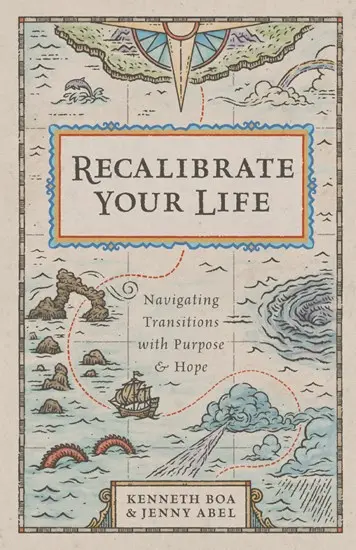About This Series
For faith-based investors, any attempt to wisely steward resources must involve a choice about how much risk, and what type of risk, is appropriate and acceptable.
Risk Factors in Investing
#1 The Risk Within Us (Human Sinfulness)
To begin with, we must acknowledge that the complex and sinful nature of humans introduced—and continues to create—the possibility of risk. Adam and Eve’s terrible choice in the garden introduced new societal factors. For the first time in history, a man failed to take responsibility for his own actions (Genesis 3:12). Furthermore, the ground itself came under a curse and began to produce thorns and thistles. The reliability of the earth’s fruitfulness was disrupted, creating an environment where one never knew, from season to season, whether one’s investment would pay off. Even if the environmental conditions were right, the person given responsibility for tending the crops might fail to complete his or her duties, or act lazily and blame his or her laziness on someone else.
Adam and Eve’s son, Cain, introduced a new level of risk to the environment, choosing to exercise outright contempt for the welfare of his own brother, and exhibiting jealousy and greed for the sake of personal gain and recognition. Thus, sinful impulses became a risk factor in our world. The sin nature of humanity now factors into every investment decision we make.
The sin nature of humanity now factors into every investment decision we make.
Our own sinfulness, as well as the sinfulness of others, cannot be overlooked as a potential risk factor. Jeremiah 17:9 states, “The heart is deceitful above all things and beyond cure. Who can understand it?”
We must not only carefully examine our own intentions, but also the intentions of the individuals and companies behind the investments we make. For this reason, every faith-based investor must join the psalmist in praying:
Turn my heart toward your statutes and not toward selfish gain. Turn my eyes away from worthless things; preserve my life according to your word. (Psalm 119:36–37 NIV).
#2 The Value Placed on Covenant Keeping
Besides personal sinfulness of ourselves and others, another prominent risk factor is the amount of value a society or an individual places on covenant keeping. A covenant is a biblical practice of pledging to obligate oneself, one’s household, or one’s offspring to another person.
“Cutting covenant” was the foundation for much of present-day contract law. It signified a promise and ceremonially sealed it with the intermixing of blood. It bound one person to the other, or even one tribe to another, often for generations.
[panel style=”info” title=”Definition: Covenant” text_align=”left”]A biblical practice of pledging to obligate oneself, one’s household, or one’s offspring to another person.[/panel]Historically, covenants contained several components. There was an agreement (terms). There was some form of sacrifice (consideration). There was an oath required, and there were witnesses. We can see parallels to an investment agreement today. There is an understanding of terms and an offering to sacrifice personal funds to enter into an agreement with another, based on the other party’s oath to repay the invested funds.
It is the recipient’s capacity, history, and dispositions toward keeping this covenant that factors into how risky a particular investment is. First, we must ask if we are investing in a known commodity that has shown a history of successful repayments and consistent production. If so, there is likely a lower risk involved in this investment. If, however, the investment is in either an unknown area of development or is with an unknown party, this lack of credible history creates a higher level of risk. Further, if a party’s disposition toward covenant keeping has been shown to be inconsistent, based on prior defaults, investment failures, or erratic behavior, the associated risk will reflect such instability.
If a party’s disposition toward covenant keeping has been shown to be inconsistent … the associated risk will reflect such instability.
The Bible tells us that “a double-minded man” is “unstable in all his ways” (James 1:8). We may also add that an unstable man should be considered a high-risk investment!
Throughout the Bible, God is clearly shown to be a covenant-keeping God, and He requires His people to be a covenant-keeping people. Today, the government’s manipulation of an economy can affect how a covenant is kept. Bankruptcy laws may make a person less likely to repay their debts. Inflation allows a borrower to repay a lender with less valuable currency.
#3 Government Manipulation
Beyond human sinfulness and disposition towards covenant keeping, we must also remember that governmental manipulation can create the impression of prosperity during a time of scarcity. This may not seem like a potential risk factor at first, but the consequences of overlooking it may be significant, either positively and negatively.
The Good Kind of Manipulation: Joseph’s Example
In Genesis 41:29–36, Joseph laid out for Pharaoh a plan for a governmental intervention that would save Egypt from a seven-year famine. He began by establishing what the real economy would be: “Seven years of great abundance are coming throughout the land of Egypt, but seven years of famine will follow them. Then all the abundance of Egypt will be forgotten, and the famine will ravage the land” (verses 29–30).
Joseph then shared how the government could manipulate this economy (notably for the good of the people) by withholding a portion of the production in the good years (savings) and reintroducing that production in the years of famine.
Joseph’s approach to using government for the people, as a protector of them, is consistent with God’s purpose for establishing governmental authority—to protect the people (see part 5). Not all government interventions in economic affairs (e.g., attempts to artificially stimulate or otherwise manipulate a market) will be well motivated. So it must be discerned if the government is working as a protector of the interests of the people, or as that of a self-serving individual, seeking its own personal gain. This differentiation is a key factor in assessing the inherent risk of investing in a particular market, just as determining the motives of an investor is.
The Bad Kind of Manipulation
Throughout history, when governments wished to create a storehouse from which to infuse funds, goods, or commodities, that storehouse had to be planned for and gleaned from during periods of prosperity. That is no longer the case. Today, governments often use a system of “fiat” money.
Derived from the Latin word meaning “let there be made,” fiat money is created when a government reserves the right to create a storehouse of currency from nothing and with no inherent financial backing or reserve beyond that government’s promise that it will one day have value. The government can then infuse the fiat money into, or withdraw it from, the economic system at any time.
This infusion and/or withdrawal of funds is what causes the phenomenon of inflation, or the change in the spending and purchasing power of money. When a government has the ability to create and withdraw capital from the system, it has the ability to either increase or decrease interest rates and yields, misrepresenting the true measure of risk inherent in a market system.
This should be considered a misuse of a government’s ordained role and should be carefully guarded against.
Defining Risk
In a sense, risk is the intersection of God’s creative nature expressed through humanity and humanity’s humility or lack thereof. In other words, risk expresses the creative nature inherent within those who have been created in God’s image but must be mitigated by our awareness that we are not, in fact, God.
[panel style=”info” title=”What Is Risk?” text_align=”left”]Risk is the intersection of God’s creative nature expressed through humanity and humanity’s humility or lack thereof.[/panel]Humans have manifested this creativity many times throughout history, from the creation of the light bulb to the steam engine to the airplane. All of these innovations were considered risky endeavors in their time.
Assessing Risk
The Need for Humility
Some risk resides within any venture involving a new idea, and, as such, not all risk is bad risk. When considering investments, however, we must keep a proper humility in mind.
Many are the plans in a person’s heart, but it is the Lord’s purpose that prevails. (Proverbs 19:21 NIV)
In short, not every seemingly good idea is God’s idea, and God’s ultimate purpose for society, and for the world, will prevail. One’s good idea does not guarantee success. A proper approach to innovation should include every attempt, in humility, to mitigate risk through proper planning and realistic assessments and projections.
A proper approach to innovation should include every attempt, in humility, to mitigate risk through proper planning and realistic assessments and projections.
Jesus Himself spoke about this approach when He said, “Suppose one of you wants to build a tower. Won’t you first sit down and estimate the cost to see if you have enough money to complete it?” (Luke 14:28).
God is not risk averse. Consider:
- He chose Abraham and his barren wife to begin a nation.
- He allowed Moses’s mother to place him in a basket in the river.
- He gave His one and only Son to a young, unwedded girl who could have been stoned by her community as a result. That baby was born in unsanitary conditions in the company of farm animals.
God has taken more than a few risks in the last few thousand years. What God despises is those too proud to submit their creativity in humility to their Creator. “God opposes the proud but shows favor to the humble” (James 4:6).
Considerations
As we assess risk in pursuing investment, we must ask what our investment goals are, and what we consider a reasonable time frame within which to achieve those goals. Multiple factors should be considered as we answer these questions, including:
- Our individual/family situation
- Our emotional state
- The context of our society
- Our desired outcome (and time frame)
In all our investment decisions, time is especially important to consider. Humans have a natural tendency toward impatience. Yet, Galatians 5:22 tells us that one of the marks of a Spirit-directed life is patience. Likewise, Proverbs 14:29 says, “A patient man has great understanding, but a quick-tempered man displays folly.” Applying this to our investment approach helps level out the effects of human emotion and our unrealistic expectation of immediate results.
Patience in investing helps level out the effects of human emotion and our unrealistic expectation of immediate results.
In terms of emotions, Proverbs 12:25 says, “An anxious heart weighs a man down.” The nature of our emotions, and our ability to make careful, wise decisions as opposed to emotional, hasty decisions, will affect our stamina to weather short-term market fluctuations for the benefit of long-term gain.
In all of this, we would be wise to consider the following advice from Proverbs:
[panel style=”default” text_align=”center”]”The plans of the diligent lead to profit as surely as haste leads to poverty.”(Proverbs 21:5)
“Honor the Lord with your wealth, with the first fruits of all your crops; then your barns will be filled to overflowing, and your vats will brim over with new wine.”
(Proverbs 3:9–10)[/panel]
Explore more resources on:
- What the Bible says about rewards (see part 2 of that article here)
- Work and wages
- Biblical stewardship
- Living with an eternal purpose and perspective



